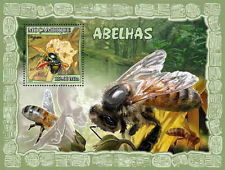Over the past decades, both wild and domesticated insect pollinators are in dramatic decline, which puts at stake the existence of species, ecosystem resilience and global food security. Globally, 87 of major food crops depend on animal pollination. Together these account for 35 % of the world food production volume. Pollinator mediated crops are indispensable for essential micronutrients in the human diet. Many ornamental plants as well as crops for fibre, fodder, biofuels, timber and phytopharmaceuticals also depend on insect pollinators. This article aims to map the current situation of pollinators worldwide, with a focus on the critical role of pollinators in the human food chain and ecosystem sustainability, their intrinsic and extrinsic value, as well as the causes of their declines and the interventions needed to conserve them, in order to develop an argument for the importance of conserving and restoring pollinator populations and diversity. The present pollinator crisis threatens global and local food security, can worsen the problems of hidden hunger, erodes ecosystem resilience, and can destabilise ecosystems that form our life support system. An integrated approach that simultaneously addresses the key drivers is needed. This includes creation and restoration of floral and nesting resources, a global phase out of prophylactic use of neonicotinoids and fipronil, improvement of test protocols in authorisation of agrochemicals, and restoration and maintenance of independence in regulatory science. The authors argue that an international treaty for global pollinator stewardship and pollinator ecosystem restoration should be initiated in order to systemically counteract the current crisis.
Source:
Jeroen P. van der Sluijs, Nora S. Vaage. Pollinators and Global Food Security: the Need for Holistic Global Stewardship. Food Ethics, pp 1-17. First online: 09 May 2016

- Login om te reageren
